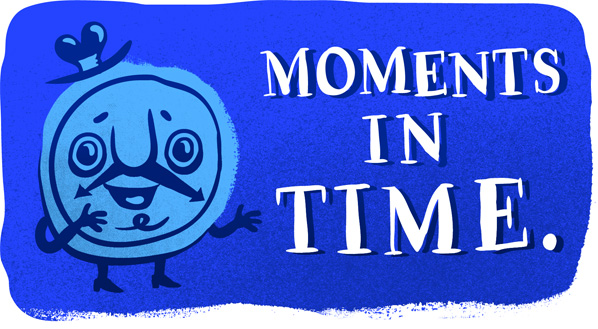Our city has a history. Sure, it’s not especially long or hugely interesting history – but it has its moments. These are them.
Moments in time #5 – The land of the free
Adelaide, as Adelaideans are fond of telling those with functioning eardrums, was founded as Australia’s first free colony.
This statement is typically followed by reference to the fact that convict blood courses through the veins of every Victorian today, and to keep a close eye on your loaves of bread lest they be pinched by the abominable New South Welshmen.
Less-mentioned is the fact that the idea for the free colony of Adelaide was first imagined by a convicted criminal sitting in a prison cell in England, probably dressed in those novelty arrow pyjamas. The man’s name was Edward Gibbon Wakefield and he was, to put it gently, a ‘scoundrel’.
Chief among ‘Gibbo’s’ misadventures was the 1826 kidnapping of a 15-year-old child, Ellen Turner. Not content with merely abducting the wealthy heiress from her schoolhouse, Wakefield then absconded with her to Scotland and tricked her into marriage. The scheme appears to have been aimed at getting to Turner’s father’s vast, vast, vast fortune (vast): after the nuptials, Wakefield wrote to the senior Turner informing him of the fact that his daughter had been legally married and can I have the money now please.
Rather than roll over and allow Wakefield to springboard dive into his vault of golden coins, however, Mr. Turner went on the offensive. Much like a ye olde worlde Liam Neeson, he managed to retrieve his daughter from the hotel in France in which Wakefield was keeping her captive. What followed were three years in the slammer for Wakefield and his brother, William, who had assisted in the kidnapping plot.
It was during this period of incarceration that Wakefield cooked up his next caper: establish a free colony in Australia. It was admittedly quite a leap from the kidnapping and blackmail racket. His plans for the colony, which we imagine were smuggled out of jail inside a series of cakes, were published in newspapers and for some reason eventually attracted serious interest from powerful people.
Wakefield’s idea was basically this: instead of stealing the land from the Aboriginal people and then giving it away for free to settlers, why not make a quick buck in the process by charging money for said stolen land? The cash could then be used by the colonial authorities to pay for free men and women to travel to Australia, who would themselves be contractually obliged to work in the state. It was the type of dodgy, exploitative scheme that today would – at the very least – land you as the lead story on Today Tonight. (In fact, Wakefield’s plan went on to receive the contemporary equivalent – a brutal slamming by Karl Marx in Chapter 33 of Das Kapital (volume one)).
Wakefield even had a great name cooked up for his proposed colony: ‘Wellington’. Luckily for us, King William IV overruled this terrible idea and instead named the city for his consort, Adelaide of Saxe-Meiningen. (We certainly dodged a bullet in not being named ‘Saxe-Meiningen’.)
Even more fortunately for Adelaide, as the plans for the city moved closer and closer to realisation, Wakefield found himself cut out of the decision-making process. Frustrated, he lost interest in the free colony plan altogether, and instead turned his attentions to two other mad-capped money-making capers, named New Zealand and Canada.
And so it was that our free city was conceived from within a prison cell by a convicted child abductor / extortionist. The entirety of this article is best read while listening to the Benny Hill theme song.





